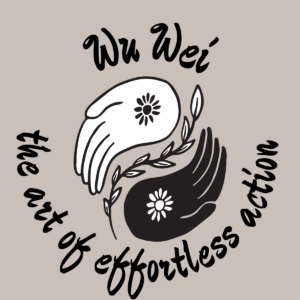If you’re like me, you are often your own worst critic, biggest bully, and recounter of an always-growing list of mistakes or missteps. The reality is that almost all of us could stand to be a lot kinder to ourselves, and daily self-compassion exercises can help us.
This article shines a light on why self-compassion is so beneficial to our health and happiness, and nearly critical for our personal growth. It highlights 8 experts who shared with me their own effective daily self-compassion exercises and how these practices help them thrive both personally and professionally.
Understanding Self-Compassion

Self-compassion is, essentially, giving yourself the same compassion you would give to someone you love or know well. To someone who is close to you, that you care about in some fashion, or at least find to be a good human and have some respect for.
It’s about treating yourself with the same kindness, care, and understanding you would offer a friend in need. This practice is rooted in the belief that everyone deserves compassion, including yourself, and exploring self compassion deepens this understanding and opens a door to offering more love and gentleness to ourselves.
Some of the key skills involved in self-compassion include:
Mindful awareness, which helps you recognize your feelings without judgment
Self-acceptance, which encourages you to embrace your imperfections
Living your values, which guides you to act in ways that align with your beliefs
Loving-kindness, which involves cultivating a warm and caring attitude towards yourself and others
The Benefits of Daily Self Compassion Exercises

Engaging in daily self-compassion exercises can profoundly impact your emotional and mental well-being. Research shows that it is linked to lower levels of anxiety, stress, and depression. It also contributes to increased self-esteem and a positive self-image.
In part, self-compassion involves developing greater awareness of your self-critical thoughts and negative self talk, so you can be aware of the moments when more self-compassion is necessary.
With this increased awareness, you can then practice more kindness, understanding, and forgiveness toward yourself when you fall short of your expectations. All of these things are crucial for emotional resilience and help us not to get bogged-down in negative thought patterns.
So, making self-compassion a regular habit can greatly enhance emotional resilience and mental health. Tailoring your self-compassion exercises to your own interests or needs can further help you attain lasting emotional stability and a positive mindset. By incorporating some of these practices into your daily life, you can navigate life’s challenges with more confidence and grate— ultimately leading to a healthier and happier life.
Experts Insights on Self-Compassion Exercises
In the realm of personal growth, insights from experts always provide invaluable guidance. Here are some of the personal self-compassion exercises shared by seasoned professionals, each revealing how practicing self-compassion foster their emotional resilience and well-being.
Discover which of these expert-recommended techniques speaks to you and you you can use it to transform your own approach to self-care and enhance personal growth!
Self-Compassion Time-Out
“One of my favorite self-compassion exercises, especially when my ADHD decides to throw a tantrum, is what I like to call a “self-compassion time-out.” It’s ridiculously simple but oddly powerful.
Whenever I catch myself spiraling into that all-too-familiar loop of “I should’ve done better” or “I’m such a mess,” I literally just stop what I’m doing, take a few deep breaths, and pretend I’m giving myself a mini hug (without the awkward arm flailing). I close my eyes for a second and remind myself that everyone has their off days, and hey, ADHD isn’t exactly a walk in the park either.
Then, instead of berating myself for not being perfect, I try to speak to myself like I’d speak to a friend who’s having a rough day. “It’s okay,” I tell myself, “you’re doing the best you can, and that’s enough.” It sounds so simple, but it’s like hitting a reset button.
ADHD tends to make me feel like I’m juggling flaming torches while riding a unicycle, so this moment of kindness is a game-changer. This exercise gives me permission to pause, breathe, and be gentle with myself, rather than spiraling deeper into frustration.
It’s not about fixing everything in a flash—just taking a moment to say, “Hey, you’re alright, and you’re not alone in this.”
Peter Wootton, SEO Consultant, The SEO Consultant Agency
Write a Self-Compassion Letter
“An extremely successful self-compassion activity is the “Self-Compassion Letter.” I write to myself in this exercise as though I were writing to a close friend who is experiencing the same difficulty.
I provide understanding, accept my emotions without passing judgment, and remind myself that flaws are a natural part of being human. Because it reframes negative thoughts into positive, encouraging words and establishes emotional distance from self-criticism, this exercise is quite effective.
Writing a self-compassion letter helps replace harsh self-judgment with sincere compassion by changing the internal conversation to one of empathy and care. This promotes emotional healing and resilience.
Writing to yourself with kindness creates space for emotional validation and self-acceptance, enhancing emotional well-being.”
Khurram Mir, Founder and Chief Marketing Officer, Kualitatem Inc
Connect with Nature and Family
“Whenever I find myself being overly critical or stuck in negative self-talk, I take a break to go for a walk, visit the beach or somewhere green, or even just sit outside with loved ones.
Connecting with nature and being present with family helps me reset and regain perspective. It grounds me in the present, helping me release self-criticism and adopt a compassionate mindset.
Being outdoors has a calming effect, and spending time with family members reminds me of what really matters. Their support and care naturally help me soften the self-critical thoughts and replace them with a sense of gratitude and connection.
This practice has become a powerful way to shift from self-criticism to self-kindness, reminding me that I am not defined by my struggles or mistakes.”
Jamie Frew, CEO, Carepatron
Reflect and Forgive Yourself
“You know those moments where you remember something from a decade-plus ago (or last week) and you feel that twist in your stomach over how you reacted or what you said? I used to get those a lot. As a business owner, it started happening to me after networking events, so I had to do something!
Now, I let the memory come through and ask myself if I would react the same way today. If the answer is yes, then I can immediately be kinder to myself. Almost always the answer is no, which starts to calm me down.
Once calmer, I literally tell myself I forgive myself. I was a different person and/or I reacted/spoke with anger/immaturity, etc. Then, I think about how I would respond to that situation if it happened right now. This allows me to practice a response to show myself I wouldn’t do the same thing today.
By the end of this exercise, I find I can be much kinder to myself and treat myself with kindness and compassion as I would a loved one.”
Lauren Plug, SEO Consultant & Sustainable Copywriter, Copy by LP
Practice Active Mindfulness
“Self-compassion is a beautiful concept, one that dictates we should give ourselves grace during moments of chaos and imperfection. Sadly, it’s often when we’re experiencing our lowest bandwidth that we need it most but lack the muster.
One effective self-compassion technique that works for me is practicing active mindfulness. While deep breaths and idyllic visualizations are great goals, I focus on what’s within my immediate reach.
For me, that means clearing my mind of intrusive thoughts and reaching for my coloring book. As an artist, coloring becomes a form of escape. It’s a simple, meditative act that allows me to shift from self-criticism to neutrality, allowing me to discover self-kindness.
Active mindfulness keeps me grounded and present, fostering self-compassion. By engaging in a creative and meditative activity, I can let go of self-criticism and embrace a more neutral and kind perspective. This exercise is a valuable tool for cultivating self-compassion, especially during challenging times.”
Doreen Nunez, Founder, Mommy Rheum
Perform a Body Scan
My go-to practice is a body scan. Sitting quietly, I close my eyes and focus on each part of my body, starting from my toes and moving upward. This helps me shift from anxious thoughts to being present in my body. Once grounded, I take a moment to acknowledge that I did my best in each situation with the understanding and resources I had at the time.
This combination of mindfulness and self-acceptance makes it easier to let go of self-criticism and embrace kindness toward myself. It’s a reminder that imperfection is human and part of growth.
Regular body scans help me develop deeper self-awareness and compassion.
Erin Ruddy, Owner, Winston-Salem Massage and Bodywork
Talk to Yourself as a Friend
“One of my go-to self-compassion exercises is to talk to myself as if I were a close friend. When I catch myself being self-critical, I pause and ask myself, “What would I say to a friend who’s going through this?” Usually, I’d offer them words of encouragement, understanding, and kindness, not harsh criticism. I then try to apply the same gentle, supportive language to myself.
This exercise works well because it shifts my perspective. It helps me realize that I deserve the same compassion I freely give to others. It powerfully reminds me that everyone makes mistakes and that I don’t need to be perfect to deserve love and respect.
This shift from self-criticism to self-kindness is gradual, but over time, it helps build a much healthier inner dialogue and quiets the self critical voice.”
Inge Von Aulock, Chief Wealth Builder, Invested Mom
Set Realistic Expectations
“Realistic expectations have been key in avoiding self-criticism. As a wife, mom of 3, bonus mom to 3, a Mimi to 2, a business owner, and a mortgage advisor, I’ve learned that perfection isn’t the goal, it’s progress. I focus on what I can control and give myself grace when things don’t go as planned. One strategy that helps is breaking down big tasks into smaller steps.
I celebrate each small win along the way, rather than fixating on what’s left undone. This mindset shift allows me to stay positive and keep a healthy balance. I know that I’m doing my best, even if everything isn’t perfect. It’s about balance and keeping the bigger picture in mind.”
Pam Rivet, Founder, MBS | The Woman Beyond The Cape
More Self-Compassion Practices to Try

Transforming Critical Self Talk
Transforming negative self-talk into a supportive inner dialogue is crucial for fostering self-compassion. It can significantly alter how we respond to challenges and navigate life.
Cultivating a supportive inner dialogue involves recognizing when your inner critic is coming out, and consciously transforming harsh self-criticism into supportive, understanding language that nurtures self-esteem and self-acceptance. This practice addresses past difficulties and cultivates a more compassionate and empathetic self-relationship.
By actively transforming negative self-talk into positive affirmations, you can create a more compassionate and empathetic relationship with yourself while also reducing stress and improving mental well-being.
Loving Kindness Meditation

Loving Kindness Meditation (LKM) encourages the mental cultivation of love, kindness, and compassion towards oneself and others. To practice Loving Kindness meditation, sit comfortably, close your eyes, and focus on generating warm feelings toward yourself before extending that compassion outward to others.
Regular practice of Loving Kindness meditation has been shown to enhance emotional resilience, decrease negative self-criticism, and promote overall well-being. Incorporating this meditation into your routine cultivates warmth and compassion, enriching emotional growth and fostering a healthier self-relationship.
Integrating Self Compassion into Your Life
Integrating self-compassion into your day enhances almost every area of your life. By deepening the connection with oneself through specific exercises designed to foster a kinder mindset, you can achieve greater emotional stability and mental well-being. You can reduce stress and anxiety, and develop a positive mindset and compassionate outlook.
But know that integrating self-compassion into everyday life requires conscious effort. Like most things, it takes practice. Consistently applying self-compassion strategies can be tough at first, but it will lead to significant improvements in emotional well-being and functioning on all levels.

Self-compassion means treating yourself with the same kindness and understanding that you would offer to a close friend. By incorporating exercises such as self-compassion letters, mindfulness, or taking a self-compassion break into your daily routine, you can cultivate a deeper sense of self-awareness and emotional resilience needed to be a compassionate friend to yourself.
Remember, self-compassion is not about being perfect but about being kind to yourself, especially during difficult times. By embracing your imperfections and treating yourself with empathy and care, you can build a healthier relationship with yourself and a healthier, happier life.





























0 Comments